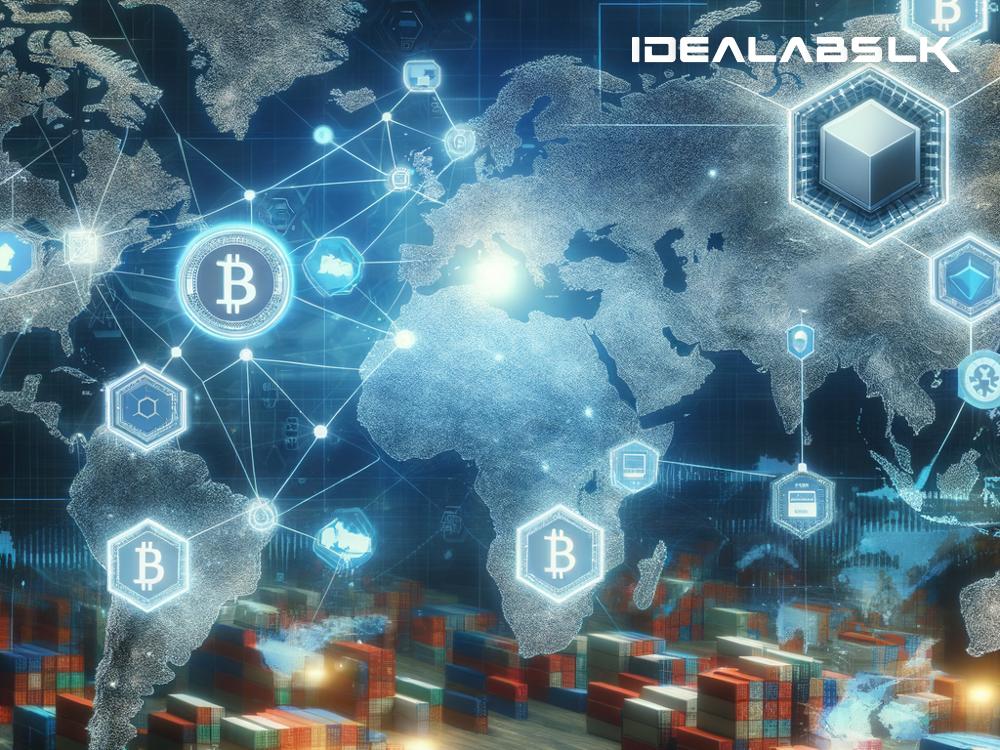Blockchain: A Game-Changer for Ethical Supply Chains
In today's fast-paced world, the journey of a product from its origin to your doorstep involves a complex web of transactions, involving numerous stakeholders across the globe. However, this intricate process often lacks transparency, leading to ethical dilemmas including labor exploitation, environmental harm, and product counterfeiting. Addressing these concerns, blockchain technology emerges as a beacon of hope, promising to revolutionize the supply chain by injecting unprecedented levels of transparency and trust. But, what exactly is blockchain, and how can it play a pivotal role in ensuring ethical supply chains? Let's dive into a simplified explanation.
Understanding Blockchain in Layman's Terms Imagine a ledger or a record book that is shared among a network of computers, where every transaction is recorded and locked in place. This ledger is open for anyone in the network to see, but no single entity controls it, making it incredibly secure and transparent. That, in essence, is what blockchain is - a decentralized, digital ledger that records transactions across many computers in a way that prevents tampering or hacking.
The Ethical Pitfalls in Traditional Supply Chains The traditional supply chain model is often murky, with little visibility into the actions of suppliers and manufacturers. This obscurity can mask various unethical practices:
- Labor exploitation: The grim reality of child labor, unfair wages, and poor working conditions often remains hidden in the shadows of complex supply chains.
- Environmental negligence: Without oversight, suppliers might disregard environmental regulations, contributing to pollution and unsustainable practices.
- Counterfeiting: The lack of transparency makes it easier for counterfeit goods to infiltrate the market, posing risks to consumers and undermining genuine businesses.
How Blockchain Brings Transparency and Trust Blockchain technology can address these ethical concerns by enabling a transparent and immutable record of every transaction within the supply chain. Here's how blockchain can make a difference:
-
Traceability: Every product can be traced back to its origin, showing exactly where it came from, who handled it, and the conditions under which it was produced. Consumers can verify the ethical sourcing of products, from the coffee beans in their morning brew to the sneakers on their feet.
-
Transparency: With blockchain, every transaction and process in the supply chain is recorded on a public ledger. This level of transparency ensures that companies uphold their ethical promises, as any deviation would be immediately noticeable.
-
Security: The decentralized nature of blockchain makes it incredibly secure against fraud and tampering. This reliability builds trust among consumers, suppliers, and retailers, ensuring that ethical standards are met.
-
Efficiency and Authenticity: Blockchain streamlines the supply chain process, reducing paperwork and eliminating inefficiencies. Additionally, it provides a foolproof method of authenticating products, helping to combat counterfeiting and ensuring that consumers receive genuine articles.
Real-World Examples and Future Prospects Companies across industries are beginning to realize the potential of blockchain for ethical supply chains. For instance, the diamond industry, which has long been plagued by concerns over "blood diamonds," now uses blockchain to certify the origin and ethical sourcing of gems. Similarly, fashion brands are employing blockchain to prove the sustainability of their garments, addressing concerns over environmental damage and labor exploitation.
The future of blockchain in supply chain ethics is promising but not without challenges. For blockchain to be fully effective, widespread adoption is necessary, requiring significant investment and a shift in corporate culture towards transparency and accountability. Moreover, issues related to technology governance, privacy, and regulatory compliance need to be addressed.
A New Era of Ethical Supply Chains Blockchain technology holds the key to transforming the supply chain, making it more transparent, secure, and ethical. By enabling consumers to trace the journey of a product from source to store, it empowers them to make informed decisions and support ethical practices. As blockchain continues to evolve and gain adoption, we can look forward to a new era of supply chain ethics, where transparency and trust are the norm, and ethical concerns are a thing of the past. In this way, blockchain isn't just a technological innovation; it's a beacon of hope for a more ethical and sustainable future.

